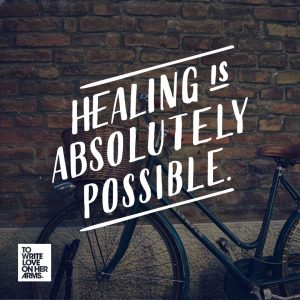Setbacks in Mental Health Recovery Do Not Ruin Your Recovery
A setback in mental health recovery is a challenge because many have this idea that recovery must be perfect. The rhetoric tends to be that we’re strong when we’re recovering and we’re weak if we have a setback; I’ve even had someone tell me she was strong enough to avoid mental illness relapse. The way I see it, though, a setback in mental health recovery -- and mental illness as a whole -- is not that simply defined.
Redefine Setbacks in Mental Health Recovery as Learning Experiences
 As I tend to do, I’m going to fall back to the body-focused, repetitive-behaviour community when explaining this one. Often I see posts from people like myself with excoriation (skin-picking) disorder or people with trichotillomania (hair-pulling disorder) who see their mental illness relapse in the picking or pulling as ruining what recovery they had. I suppose because these mental illnesses have a physical side, -- seeing clear skin or growing hair -- open wounds or a bald patch would definitely seem catastrophic and ruinous. However, I think it can help teach us about the disorders themselves. Setbacks in our mental health recovery can teach us the cycles of the picking or pulling, and it can teach us the triggers, all of which is valuable information.
As I tend to do, I’m going to fall back to the body-focused, repetitive-behaviour community when explaining this one. Often I see posts from people like myself with excoriation (skin-picking) disorder or people with trichotillomania (hair-pulling disorder) who see their mental illness relapse in the picking or pulling as ruining what recovery they had. I suppose because these mental illnesses have a physical side, -- seeing clear skin or growing hair -- open wounds or a bald patch would definitely seem catastrophic and ruinous. However, I think it can help teach us about the disorders themselves. Setbacks in our mental health recovery can teach us the cycles of the picking or pulling, and it can teach us the triggers, all of which is valuable information.
Similarly, when another wave of depression hits me, I don’t see it as ruining what recovery I already had. Like above, it can teach me the cycles or potential triggers (although mine often isn’t triggered), and it doesn’t take away what knowledge I have gained about the disorder. In fact, it can give me more (Recovery from a Mental Illness Trigger Event).
A Mental Health Recovery Setback Doesn't Mean You're Weak
My problem with the words "strong" and "weak" is the divide they create. I used to wonder why I wasn’t strong enough to reach recovery and would think that I was too broken and weak to even deserve or maintain it. While we definitely should applaud each other for the progress we’ve made because of how difficult it can be to make any progress at all, we ought to be careful about how we express that congratulation. Setting up the idea that "strong" is good and "weak" is bad ignores the very real fact that mental illness is a brain disease and occurs beyond our control.
It might seem like a very nit-picky thing for me to highlight, but from personal experience and from seeing it in others, I think it’s a very real stigma we should be aware of. I completely understand it’s a lot of self-narrative and self-stigma that shapes that rhetoric the way it is, but in our efforts to be supportive of each other, I think we should be mindful of it.
Remembering that mental health recovery comes in many shapes and forms, and even more so that recovery is not linear or perfect by any means, is important (Hope, the Foundation of Mental Health Recovery).
You can find Laura on Twitter, Google+, Linkedin, Facebook and her blog; also see her book, Project Dermatillomania: The Stories Behind Our Scars.
APA Reference
Barton, L.
(2017, February 19). Setbacks in Mental Health Recovery Do Not Ruin Your Recovery, HealthyPlace. Retrieved
on 2026, January 28 from https://www.healthyplace.com/blogs/survivingmentalhealthstigma/2017/02/setbacks-dont-ruin-mental-health-recovery
